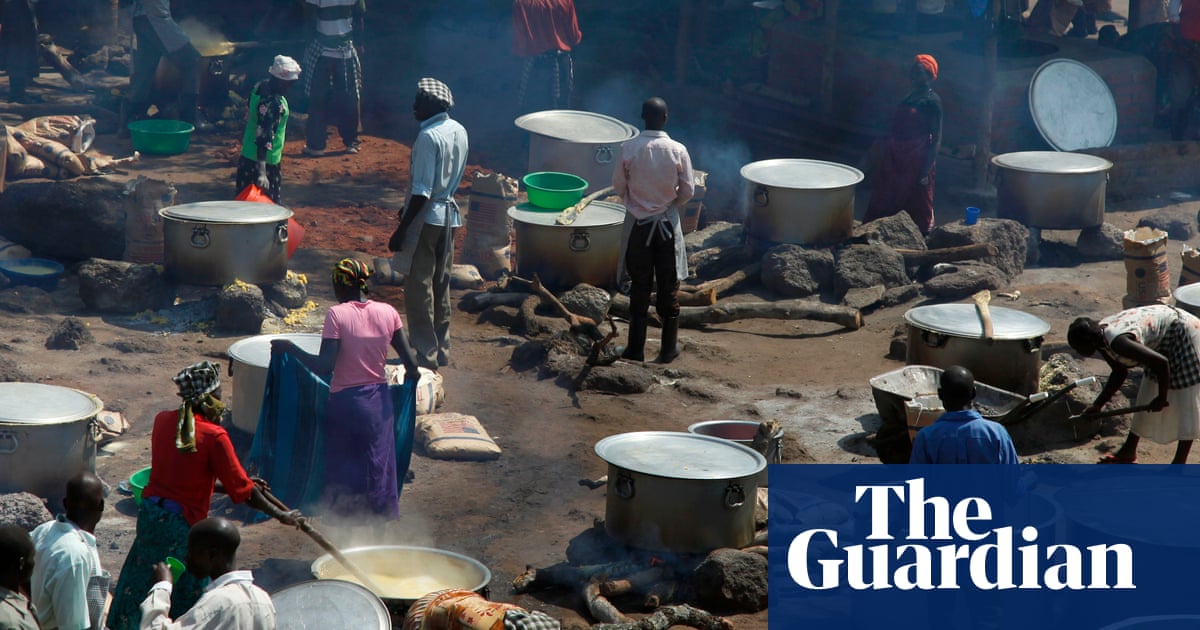Food rations for a million people in Uganda have been cut off completely this week amid a funding crisis at the United NationsWorld Food Programme, raising fears that refugees will now be pushed back into countries at war.
The WFP inUgandawarned two weeks agothat $50m (£37m) was urgently needed to help refugees and asylum seekers fleeing conflicts in the Democratic Republic of the Congo, South Sudan and Sudan.
Uganda hosts Africa’s largest refugee population of1.8 million, with60,000 new arrivals in the last three months. Malnutrition rates had reached a crisis point, said the UN agency.
“Due to severe funding shortages, @WFP_Uganda has cut 1 million refugees entirely off from food assistance,” the agency announced via social media.
“Malnutrition has reached critical levels (15% +) in refugee reception centres, and general food rations have been cut by up to 80%,” it said.
In March, the WFP slashed food relief, introducing rationing for new arrivals to the east African country.
Hillary Onek, Uganda’s minister for refugees, said it was a direct result of the radical aid cuts by the US and European countries.
Donald Trump’sfreeze on US aid spendingin January and theUK’s cut in aid spendingthe following month from 0.58% of gross national income to 0.3% have badly hit Uganda’s ability to look after refugees.
“The problem is beyond and outside our control. The global funding to support refugees has dwindled. The money given to the World Food Programme to buy food was cut off. The refugees are going to suffer the consequences,” Onek said.
“Aid can’t be depended on any more. Trump came and radically cut off funds to support refugee programmes. Other countries who have been contributing, most of them are not honouring their small contributions. WFP and UNHCR are in a total crisis because of lack of funding,” he said.
Just 46% of the $858mrequired in the multi-agency Uganda Country Refugee Response Planwas funded in 2024.
“It’s impossible for us now to shoulder the burden of refugee challenge alone. I see there is going to be impending confusion, increased violence and war,” said Onek.
“These people [refugees] will be looking for something to survive. They want to be alive. They will go into people’s cassava gardens, uproot them and that is war and confusion. We don’t know how we shall overcome that impending confusion,” he said.
UNHCR launched anappealfor $44m last month to support 55,000 new Congolese refugees and an additional 25,000 expected to arrive over the next six months.
“This rapid influx has placed considerable pressure on basic social services, including education, food, shelter, health and nutrition services, and WASH [water, sanitation and hygiene] infrastructure,” the UNHCR said.
“These conditions have strained the already limited resources, further worsened by the surge in new arrivals, lengthy processing times and the strain on transportation services for refugees.”
Simon Okello, a South Sudanese refugee inBidi Bidi refugee camp, one of Africa’s largest, said the cuts would cause starvation and malnutrition.
“We are totally messed up. This has complicated our lives totally,” he said. “We have been surviving on food rations and coupons. How are we going to get food to eat now? People will starve and die.”
“Without food now, people might be forced to go back to their home countries where we fled from or engage in illegal activities to get something to eat,” he said.
Activists fear Uganda may now begin forced repatriations, something Onek said Uganda’s cabinet would shortly be discussing.
“The other option available is that those refugees whose countries are peaceful, we should change our policies and make sure we force them to go back to their homes and leave us alone,” said Onek. “I will have to discuss it with my cabinet colleagues and then we see what direction to take.”
Dismas Nkunda, director of Atrocities Watch Africa, said: “We saw this coming. It began with the self-reliance programme where UN bodies started to go slow on the provision of humanitarian assistance.
“Matters were not helped by the coming of Trump as president and his cuts in funding for the UN.
“My fear is that host countries such as Uganda may be forced to become radical and reverse their otherwise good policies in hosting refugees,” he said.
